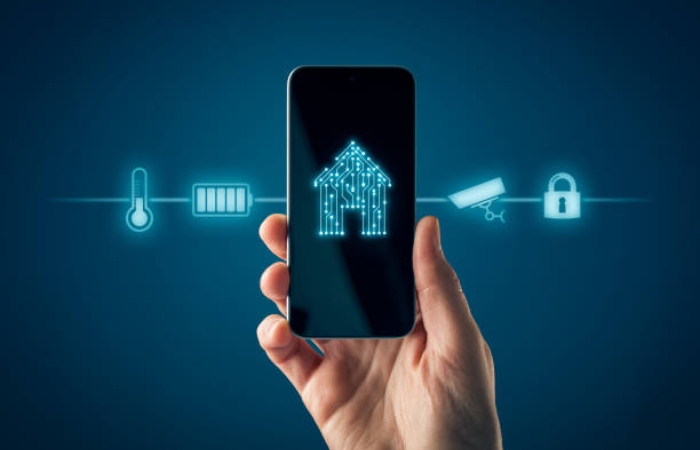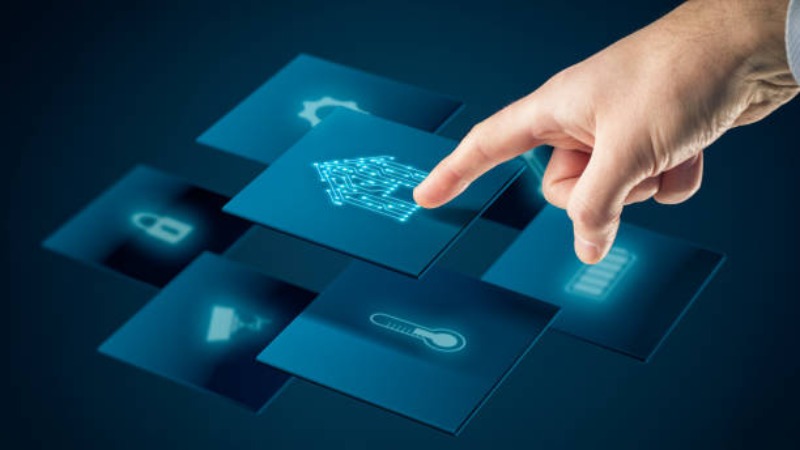Smart Home Technology has seamlessly combined into our day-to-day lives, transforming our interactions with our surroundings. Home automation stands out among these advancements as a revolutionary trend redefining modern life.
With interconnected systems and devices, homeowners can now monitor and control various aspects of their residences with unparalleled ease and efficiency. In the early decades of the 21st century, smart home automation solutions have evolved from a luxury to a necessity, paving the way for sustainable and convenient lifestyles.
Evolution of Smart Home Solutions
The concept of smart homes began with basic automation systems, such as programmable thermostats and remote-controlled lighting. However, technological advances in connectivity, including the advent of the Internet of Things (IoT), have exponentially expanded the capabilities of these systems.
Homeowners can deploy sophisticated devices to control lighting, security, HVAC systems, and electrical equipment from a single interface, often accessible via smartphones or voice-activated assistants.
Recent studies underscore this growth. A 2023 Statista report predicts that the global smart home market will reach $96.7 billion by 2028. This growth is credited to growing consumer awareness of energy efficiency and integrating innovative technologies into electrical instruments, enabling more intelligent and responsive systems.
Benefits of Home Automation
Integrating home automation systems offers many benefits, from increased security to energy efficiency. For example, smart thermostats and lighting systems use sensors to adapt to user preferences, reducing unnecessary energy consumption. According to a U.S. Section of Energy report, automated heating, ventilation, and air conditioning systems can reduce energy feasting by up to 30%, significantly reducing utility costs.
Advanced monitoring systems with AI-powered analytics and real-time surveillance tools ensure greater security. Homeowners can deploy these devices to receive instant alerts, deterring potential threats. Automation also simplifies routine tasks: smart kitchen appliances, for example, speed up cooking, saving time and effort.
Environmental Impact and Sustainability
As global concern over climate change grows, sustainable solutions have gained prominence. Home automation aligns with these goals by integrating energy-efficient devices and systems.
Smart home technologies such as automatic lighting and energy meters help minimize your carbon footprint. A Global Energy Agency (IEA) study revealed that widespread adoption of smart devices in the residential sector could reduce global energy consumption by 10% annually.
The ability to monitor and manage electrical equipment remotely places a greater emphasis on resource conservation. Many devices now provide detailed reports on energy usage, allowing homeowners to identify wasteful practices and take corrective action.
Challenges in Adopting Smart Home Solutions

Despite its benefits, there are several challenges to adopting home automation. The yearly cost of implementing these systems can be prohibitive for many households. Cybersecurity is another issue, as interconnected systems are susceptible to data leaks if not adequately protected.
To overcome these obstacles, homeowners are advised to consult professionals who specialize in electrical appliances and systems. A well-planned implementation ensures the infrastructure is robust, scalable, and tailored to individual needs.
Future Trends in Smart Home Automation
The next decade promises more innovation in home automation. Artificial intelligence (AI) and machine learning (ML) are expected to play a crucial role in improving the adaptability of systems.
Additionally, advances in wireless technology, such as 5G, will improve the connectivity of smart devices. This will enable faster response times, allowing homeowners to control their systems with minimal delay.
Collaborating with a Reputed Electrical Brand
Partnering with a well-established electrical brand can be very beneficial when adopting smart home solutions. These brands have years of experience in designing and manufacturing high-quality equipment. Their products usually meet strict safety standards, ensuring reliability and longevity.
Embrace the Future of Smart Living Today
The future of life is undoubtedly linked to the evolution of home automation. By integrating innovative solutions, homeowners can enjoy greater comfort, energy savings, and security.
As this technology continues to advance, it is set to play a pivotal role in promoting sustainable living and refining the overall quality of life. To make the most of these innovations, investing in the expertise of a reputable electrical brand ensures a smooth and reliable journey into the world of smart homes.

